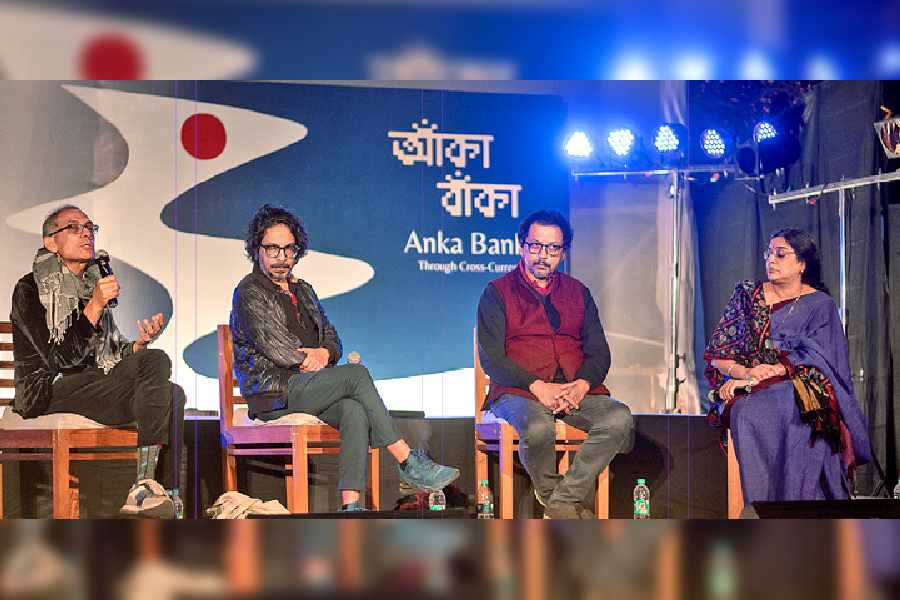Water wastage goes unchecked because of the lack of public conversation around it, Nobel laureate Abhijit Vinayak Banerjee said at the culmination of the Santiniketan chapter of the Bengal Biennale on Sunday.
“I think we need to have many of these conversations in India. Water is absolutely the first and most obvious one. There is vast inequality and vast wastage. There is a lot of water shortage. The fact that this can continue is partly a result of the fact that we have no public conversation about the right to water,” said Banerjee, who shares the 2019 Nobel Prize for Economics with Esther Duflo and Michael Kremer for their work in developing an innovative and experimental approach to alleviating global poverty.
He was part of a panel discussion with graphic novelist Sarnath Banerjee and art historian Anshuman Dasgupta. The inaugural edition of the Bengal Biennale, whose Santiniketan leg ended on December 22, featured an exhibition titled “Water Tells/Water Tales”.
It was built on the idea that water had many stories to tell. The project drew its energy from the video double-bill, titled “Water-Wars”, a collaboration between Banerjee the economist and Banerjee the illustrator. The exhibition was curated by Dasgupta, who gave it a local context.
Abhijit Vinayak Banerjee said the water crisis was set to deepen.
“Water is something that is simply impossible to live without and yet some people almost live without it. They have so little access to clean water. As a society, we haven’t yet confronted the deep inequalities that are in water. It is getting worse. As the water table falls, we are getting into situations where some people not particularly connected to urban infrastructure will just not have access to water,” he said.
The original audio-visual collaboration between the two Banerjees has two episodes. One tells the story of Punjab, where the extensive cultivation of rice — a massive “water-guzzler” — has led to rapid groundwater depletion because pumps and tube wells, thriving on power subsidy, kept digging deeper.
The other dwells on how the unregulated real estate boom in Calcutta has led to constructions in swamps and marshlands, making the city more vulnerable to waterlogging every day.
The moderator, Malavika Banerjee, the organiser of the biennale, said the project deals with a very serious issue with a “very light touch”.
Abhijit Vinayak Banerjee said he wanted to create a platform for a public conversation without “hitting people on the head with facts”.
“It needed a lightness that Sarnath can bring... deserved a more engaging presentation than the one I was personally capable of,” said the Ford Foundation International Professor of Economics at MIT.
Banerjee, the illustrator, said the way the economist “arrives at a thought is entirely different from mine”.
“It is one way of thinking. A cartoonist can also be equally heavy and lugubrious and tedious as one could accuse an academic of being. The lightness is both ways,” Sarnath Banerjee said.
Abhijit Vinayak Banerjee has authored a cookbook, Cooking to Save Your Life, documenting his passion for food and cooking.
“What is it about food that makes you, as an economist, feel like writing about it,” asked the moderator.
The economist spoke of sustainability. Dietary habits, he said, are “moving towards specific products that are not necessarily sourced in a sustainable way”.
He gave the example of basmati rice.
“Basmati is at the heart of one of the water wars in Punjab. Basmati rice is a complete water-guzzler. Now, even in Bengal, you will see that a lot of pulao is made with basmati rice. We have several varieties of rice.... Every state has its own pulao rice. But somehow, there is this homogenisation, a kind of a prioritisation of basmati over other rice,” he said.










